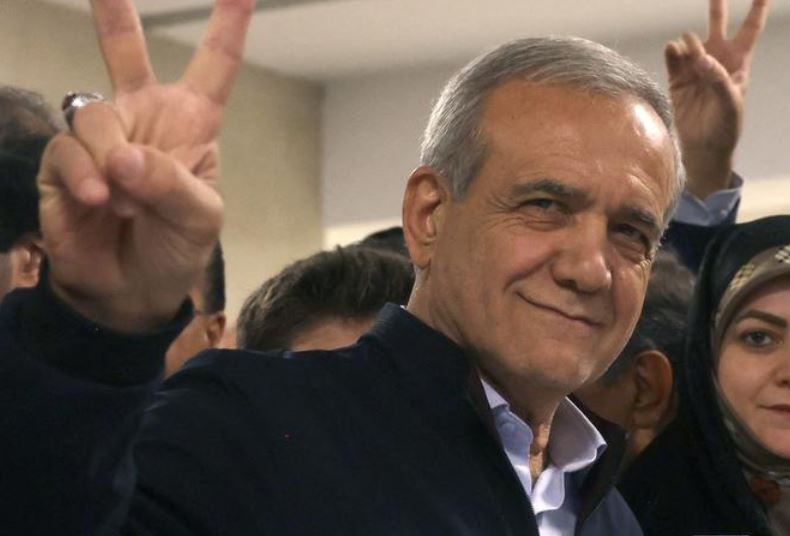Nitin Gadkari’s Diplomatic Visit to Iran: A Strategic Move
On July 30, 2024, Indian Minister for Road Transport and Highways, Nitin Gadkari, attended the swearing-in ceremony of Iran’s newly elected President Masoud Pezeshkian in Tehran. This visit, while ceremonial, underscores the growing strategic partnership between India and Iran, particularly focusing on the development and utilization of Chabahar Port.
The Significance of Chabahar Port in Bilateral Relations
Chabahar Port, located on Iran’s southeastern coast, has emerged as a linchpin in India-Iran relations. During his visit, Gadkari conveyed warm greetings from Prime Minister Narendra Modi to President Pezeshkian, highlighting the importance of this port in the broader context of bilateral and regional trade.
The Ministry of External Affairs (MEA) emphasized that discussions during Gadkari’s visit highlighted the pivotal role of Chabahar Port in enhancing connectivity between India, Iran, Afghanistan, and Central Asia. This port is not just a strategic asset for Iran but a crucial gateway for landlocked Afghanistan and Central Asian countries to access global markets.
Chabahar Port: A Gateway to Regional and Global Markets
The development of Chabahar Port represents a significant step in fostering regional connectivity and trade. The port’s strategic location allows it to serve as a conduit for Indian goods reaching Afghanistan and Central Asia, bypassing the unstable routes through Pakistan. This logistical advantage is expected to bolster economic interactions and provide these landlocked regions with essential access to international markets.
The bilateral discussions, as reported by the MEA, have reinforced the commitment of both nations to leverage Chabahar Port’s capabilities. The port is poised to become a cornerstone of economic cooperation, driving trade growth and fostering regional integration.
Impact of Political Changes in Iran on Diplomatic Relations
The inauguration of President Masoud Pezeshkian follows the tragic death of President Ebrahim Raisi in a helicopter crash earlier this year. The political transition in Iran has been closely watched by India, given the strategic importance of Iran in the region. Prime Minister Narendra Modi’s prompt congratulations to President Pezeshkian signify India’s ongoing interest in maintaining and enhancing its diplomatic relations with Iran.
This political shift has not disrupted the momentum of bilateral cooperation but has instead opened new avenues for strengthening ties. Gadkari’s visit is seen as a reaffirmation of India’s commitment to its strategic partnership with Iran, underscoring the continuity of diplomatic and economic engagements.
The Road Ahead: Expanding India-Iran Strategic Partnership
Looking ahead, the India-Iran partnership is expected to deepen, with Chabahar Port at the center of this collaboration. The port’s development aligns with India’s strategic interests in enhancing connectivity and trade in the region. As both nations continue to build on their shared goals, the focus will likely remain on maximizing the potential of Chabahar Port and exploring new areas of cooperation.
The Indian government’s support for Chabahar Port underscores its commitment to regional stability and economic development. By facilitating greater access for Afghanistan and Central Asia, India and Iran are not only enhancing their bilateral relations but also contributing to broader regional integration and economic prosperity.
Conclusion: A New Chapter in India-Iran Relations
In summary, Nitin Gadkari’s attendance at the inauguration of Iran’s President Masoud Pezeshkian marks a significant moment in the evolving relationship between India and Iran. The discussions surrounding Chabahar Port highlight its strategic importance and potential for transforming regional trade dynamics. As both countries navigate this new chapter, the emphasis on enhancing connectivity and economic cooperation will remain a cornerstone of their partnership.
The diplomatic engagement exemplified by Gadkari’s visit reflects a proactive approach to international relations, where strategic assets like Chabahar Port play a critical role in shaping regional and global trade. The continued focus on this port promises to advance not only bilateral ties but also regional stability and economic integration.
Soumya Smruti Sahoo is a seasoned journalist with extensive experience in both international and Indian news writing. With a sharp analytical mind and a dedication to uncovering the truth, Soumya has built a reputation for delivering in-depth, well-researched articles that provide readers with a clear understanding of complex global and domestic issues. Her work reflects a deep commitment to journalistic integrity, making her a trusted source for accurate and insightful news coverage.



